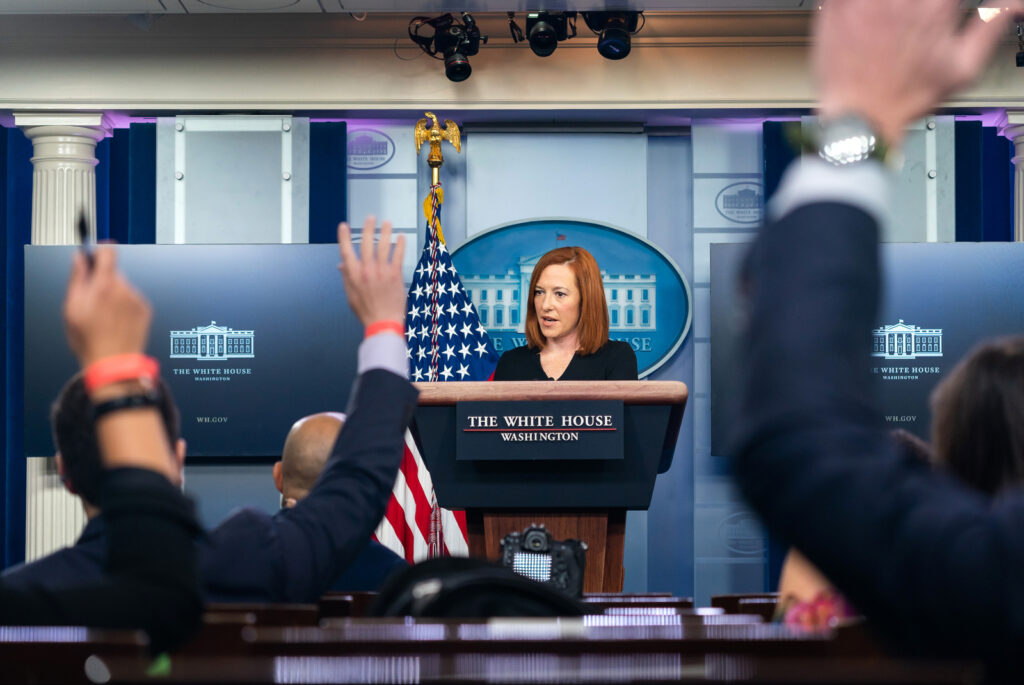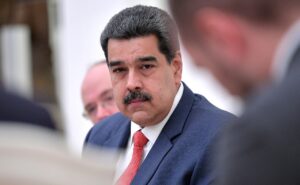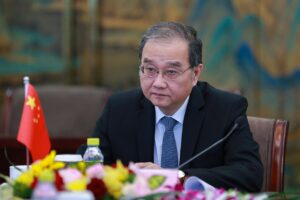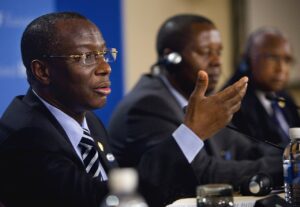U.S. policy toward the Democratic People’s Republic of Korea (DPRK or North Korea) underwent major adjustments under the Biden administration. When it was first announced last April, White House Press Secretary Jen Psaki explained that the U.S. policy towards the DPRK is to increase “the security of the United States, our allies, and deployed forces,” and that the U.S. has “and will continue to consult with the Republic of Korea (ROK), Japan, and other allies and partners at every step along the way.” This messaging was not a big surprise, given that coordination and cooperation with allies were repeatedly mentioned during the policy review process. However, this apparent prioritization on consolidating U.S. alliances in East Asia over the denuclearization of North Korea appears to be doomed to fail.
Biden’s North Korea policy appears to have established U.S.-DPRK relations on the basis of the Singapore Joint Statement, a set of principles issued at the conclusion of the first U.S.-DPRK summit in Singapore in 2018. Early messaging also seemed to demonstrate a greater acceptance of many of the ideologies of South Korean President Moon Jae-in’s administration. For example, descriptions of the policy borrowed language from the joint statement, such as the “complete denuclearization of the Korean Peninsula” when defining the goal of talks; it even indicated that the controversial U.S.-ROK working group, meant to help coordinate ROK initiatives toward the DPRK, would finally be scrapped. What was missing from these talking points, however, were any specific roadmaps for denuclearization or sanctions relief. The policy also brought the issue of human rights back into focus, which has always been a sensitive subject for the DPRK. More importantly, the policy failed to address any kind of multilateral approach, especially on whether or not and exactly how China and the U.S. would cooperate. This omission reflects the deep distrust that exists between these two powers.
If the Biden administration would have adhered to the Singapore Joint Statement more closely, not just the denuclearization part, and worked to initiate a more multilateral approach, the U.S.-DPRK dialogue most likely would have resumed. Instead, the U.S. emphasis on strengthening its alliances with the ROK and Japan, and maintaining or expanding economic sanctions against the DPRK, has not been compelling to the North Koreans, despite calls for talks, and eliminates any hope for re-engagement.
In fact, based on the speech that Kim Jong Un gave during the Fifth Session of the 14th Supreme People’s Assembly of DPRK on September 29, 2021, it appears that the window for opportunity has already narrowed. In his speech, Kim noted: “the structure of the [sic] international relations has been reduced to the structure of ‘neo-Cold War.’” In reference to the Biden administration’s new policy, he stated that: “the U.S. is touting ‘diplomatic engagement’ and ‘dialogue without preconditions’ but it is no more than a petty trick for deceiving the international community and hiding its hostile acts and [is] an extension of the hostile policy pursued by the successive U.S. administrations.”1“Respected Comrade Kim Jong Un Makes Historic Policy Speech ‘On the Orientation of Present Struggle for a Fresh Development of Socialist Construction,’” DPRK Ministry of Foreign Affairs, September 30, 2021.
Given this formulation, it appears that the U.S. efforts to strengthen cooperation among its Asian allies and the intensification of U.S.-China competition have left the DPRK frustrated with the Biden administration. Working within the framework of this being a “neo-Cold War” configuration, the DPRK will most likely act as follows:
- Increase its cooperation with China and Russia. The DPRK is fully committed to breaking through the economic bottleneck caused by sanctions and COVID-19 and will rely more on China and Russia to do so. They are also invoking the concept of a shared “common threat” with China, as exemplified by their recent criticism of the trilateral security partnership between Australia, the United Kingdom, and the U.S. (AUKUS) and public support for “the Chinese party, government and people…to defeat the hostile forces’ frantic anti-China confrontational moves.”2“Respected Comrade Kim Jong Un Sends Greetings to President Xi Jinping,” Rodong Sinmun, October 1, 2021.
- Exercise greater caution around engaging with the ROK. Although the DPRK has not completely closed its doors to engaging with South Korea, it is very aware of the Moon administration’s attempts to seek further engagement with the North while also building up its military under the pretext of “containing” the DPRK. This mistrust of Seoul will only deepen as neo-Cold War alignments become more concrete. Any move by either side that is viewed to be detrimental to the other will be met with retaliation and could result in a vicious circle of escalation.
- Continue to upgrade both its ballistic missile and conventional military capabilities. The DPRK recently tested new long-range cruise missiles to prevent the ROK and the U.S. from taking preemptive strikes against the DPRK. In keeping with the ongoing five-year plan announced at the Eighth Party Congress in 2021, the military is continuing to improve its conventional systems while also testing ballistic missiles to improve ranges, accuracy, and reliability.3“Great Programme for Struggle Leading Korean-style Socialist Construction to Fresh Victory On Report Made by Supreme Leader Kim Jong Un at Eighth Congress of WPK,” DPRK Ministry of Foreign Affairs, January 9, 2021. The recent lifting of range restrictions of South Korea’s missile capabilities and resumption of South Korean missile testing and development make further North Korean missile development inevitable, catalyzing an arms race on the Korean Peninsula and in the great East Asian sphere.
- Reduce the risk of crisis with the ROK. The DPRK restored its once severed hotlines with the ROK toward the end of last year, in part to avoid crises with the South. While the North works to increase its military strength and coercive power, it is also aware that any kind of crisis could potentially result in a larger conflict or even a war that is dictated by the neo-Cold War powers and wants to prevent this situation from happening.
From the Clinton to the Biden administrations, the U.S. and DPRK have unsuccessfully tried “bottom-up” and “top-down” approaches to achieve diplomatic breakthroughs. However, engagement with the DPRK requires effective coordination among broader stakeholders—with every party with a vested interest in the peaceful resolution of the DPRK issue avoiding actions and rhetoric that increase tensions. With U.S. and China rivalry now rising, and more and more countries perceiving the situation forming into a neo-Cold War, it is safe to assume that all parties involved are likely to remain at odds for the foreseeable future and the possibility of a crisis on the Korean Peninsula will increase. Furthermore, if denuclearization is not a realistic short-term goal, all sides involved need to maintain an amicable atmosphere that is conducive to talks by doing the following: encouraging the two Koreas’ relationship, restarting multilateral cooperation, putting specific plans on the table, and, finally, ending the U.S.’s alliance-first approach.
Notes
- 1“Respected Comrade Kim Jong Un Makes Historic Policy Speech ‘On the Orientation of Present Struggle for a Fresh Development of Socialist Construction,’” DPRK Ministry of Foreign Affairs, September 30, 2021.
- 2“Respected Comrade Kim Jong Un Sends Greetings to President Xi Jinping,” Rodong Sinmun, October 1, 2021.
- 3“Great Programme for Struggle Leading Korean-style Socialist Construction to Fresh Victory On Report Made by Supreme Leader Kim Jong Un at Eighth Congress of WPK,” DPRK Ministry of Foreign Affairs, January 9, 2021.




